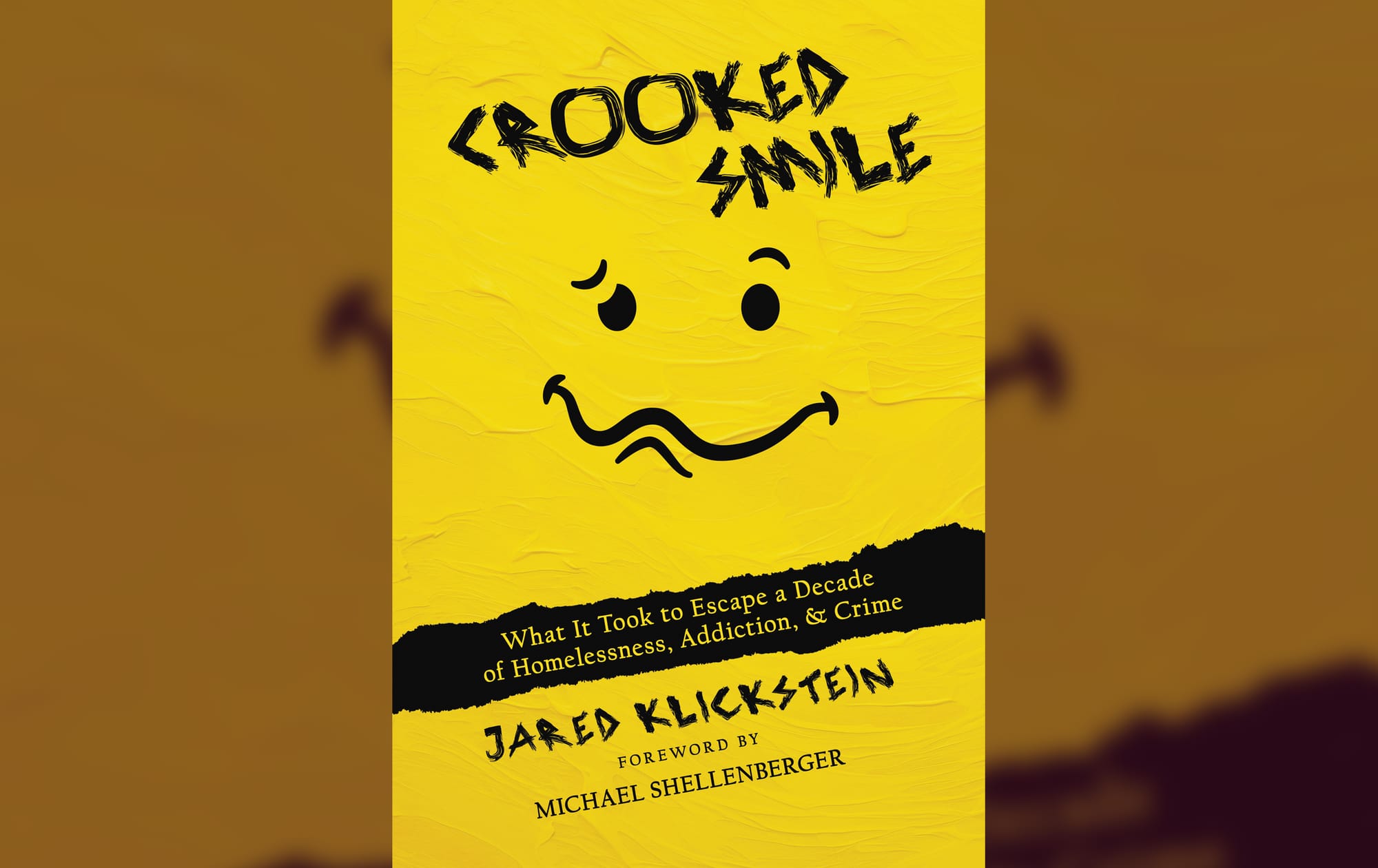From being a drug-addicted homeless man in the depths of Skid Row, Jared Klickstein has the firsthand experience necessary to navigate conversations about the current crises of homelessness and addiction in Los Angeles.
After nearly a decade spent chronically homeless and addicted, Klickstein achieved sobriety in 2018 and began work on his memoir Crooked Smile: What It Took to Escape a Decade of Homelessness, Addiction, & Crime, available on Bombardier Books on June 25. The book tells his tale of becoming addicted to heroin while attending UC Santa Cruz, dropping out due to his vice and venturing the streets of LA with crime and drugs on his mind. Now with a clear head, he said it was a coincidence that the time period after the COVID-19 pandemic was appropriate for advanced discussion of homelessness and addiction.
"This is a poignant time to be talking about homelessness and addiction because both of these epidemics have really gotten out of control since [the pandemic]," Klickstein said. "As we can see in many major cities across America, there is rampant homelessness and nothing really being done about it, and a lot of policies are actually just enabling both epidemics … it’s never been a more appropriate time to talk about these subjects."
Aside from the appropriate time, Klickstein felt it necessary to tell his story to show that homeless can become productive members of society, despite being viewed as a "complete menace" from violent actions.

"It’s a good way to show that there are people inside those bodies that right now are being governed entirely by addiction," Klickstein added. "These people have souls and they have value, but as long as they’re under the spell of horrific drug addiction and mental illness, their lives are basically being wasted, and it’s not right to just enable that sort of thing and sit back and [sit] on our hands."
Though mostly sleeping in Downtown Los Angeles’ notorious Skid Row, Klickstein said there was not "ample opportunity to commit crime" in the area, which led him to take the bus to Santa Monica during his lowest point. There, him and another addicted acquaintance would rob places like supermarkets and drugstores, and also take part in property crimes.
"Unfortunately, most of my time spent on the Westside was doing very bad things," he said. "I of course regret these things, but at the same time, I was taking orders [from] my drug addiction and there were really no options for detox or long-term treatment."
His treatment came from being incarcerated, a situation he called ironic due to the self-defense nature of the incident. Mugged at a Panda Express restaurant by another homeless person, Klickstein grabbed his knife to try and attain his stolen cell phone, leading to an assault with a deadly weapon charge that was eventually dropped. To get himself treated, however, he came to an agreement for a six-month stint in jail in exchange for ceasing probation once released, so that he could enter into a nonprofit rehabilitation program.
The program was successful, leading to Klickstein becoming an advocate for similar programs and decrying the "completely saturated" market of for-profit rehab centers designed to "extract money" from addicts. He added that he is in favor of places that can keep addicts for 6-12 months at a time in order to give them "sufficient" space to rehab and relearn how to rejoin society.
"They just simply don’t work, a profit motive cannot be involved in recovery from drug addiction, so that’s why I think it’s very important to have a system of nonprofit detox and rehabilitation centers where the motive to turn a profit is just not involved in the process," Klickstein said.
A crucial piece to both the homelessness and addiction crises, he notes, is that decriminalization of criminal and antisocial behavior made it so "pretty immense consequences" to his health were not properly solved. Klickstein says he’s not advocating for more jail sentences, but rather mandates to enter into long-term treatment programs.
"I really saw zero consequences for doing things like professional shoplifting, getting high in public, petty theft … the only services that I was really provided were [a] free cell phone, free needles and free crack pipes," Klickstein said. "Those three things, they do really help someone on drugs that has no intention of stopping drugs, but there [were] really no resources for me to get off drugs."
He adds that while a separate crisis, that of housing in Los Angeles, plays a "small role" but less than what pro-housing politicians believe. He said that while he was provided housing during his addiction period, he was kicked out for drug use, feeling that similar situations would pop up even if lack of housing was solved.
"If you give someone that’s addicted to fentanyl a free apartment, you just have fit an addict in an apartment, that’s all you have," Klickstein said. "It’s not going to fix anything. In fact, a fentanyl addict sitting in an apartment is much more dangerous than a fentanyl addict sitting on the sidewalk, because this gives them a place to basically overdose with no one watching … I’m not against housing the homeless, I just want to house them in therapeutic communities that promote recovery from addiction and give them medical treatment for mental illness if they have any."
Crooked Smile is now available for pre-order on Amazon with a paperback price point of $16.85 and a Kindle version available for $9.99.

